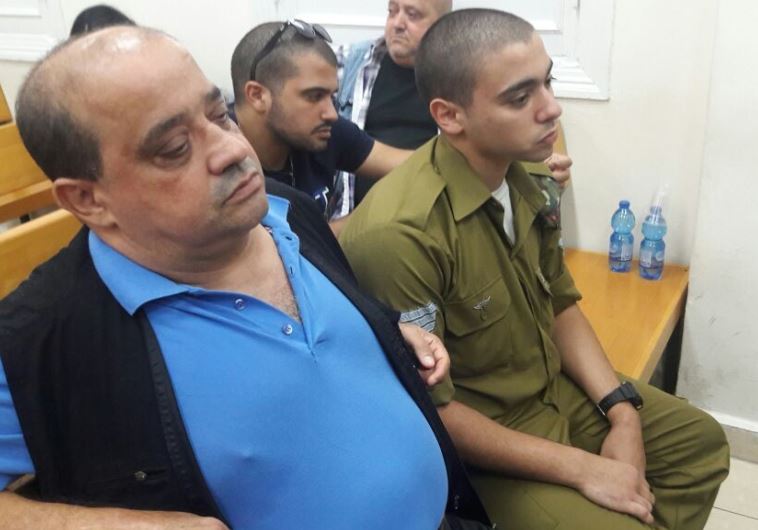IDF top Hebron commander: Shooting of immobile Palestinian assailant 'unjustified'
Hebron shooter lawyer stomps out of court screaming: It’s disgraceful what is happening here.
 Trial of IDF Sgt. Elor Azaria, July 6, 2016(photo credit: YONAH JEREMY BOB)Updated:
Trial of IDF Sgt. Elor Azaria, July 6, 2016(photo credit: YONAH JEREMY BOB)Updated: